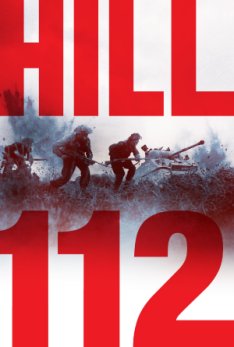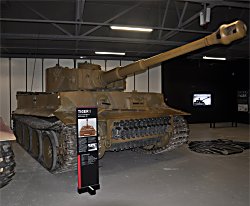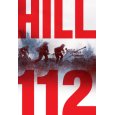

Hill 112
The idea for this novel goes back a long way. When I started Prep School the man who had been headmaster for decades had retired apart from a little part time work. In his office was a photograph of a Sixth Form from around 1937 – some 20 or so boys aged twelve or thirteen. None survived the Second World War. Their age, and the values inculcated in them by their upbringing and reinforced when most went off to Public School, meant that they were drawn to all the most dangerous roles in the Armed Forces. They did what they had been raised to do and chance dictated that they died. Loss on this scale is always associated with the First World War and the likes of the Pals Battalions, but it happened in the Second World War, if less often because of the scale of Britain's commitment.

In my day, the parents of most of the boys at the school were a little older than average. In my class more than half of the fathers had served during the War or done National Service in its aftermath. The sense of those times remained strong and this was reinforced because my father had a shop and a lot veterans of those years tended to gather to drink tea and talk (even if in hindsight I can see they were careful which stories they told in front of the children). This made the events of those times very personal for me and fuelled an interest in those times that has endured throughout my life. I have read widely ever since and the story of the fighting after D Day has had a particular fascination, making it the natural setting for the story.
While I was at Oxford I served in the OUOTC, where the training had not changed very much since 1945. Early on I was set what was called a Command Task and remembered my late father talking about facing an almost identical problem during his wartime service. On another drill night we were taught to strip and reassemble a Bren Gun (re-chambered and re-designated the LMG), and I could not help noticing that it was stamped 1944. Little experiences like this, combined with decades of research, came together to create Hill 112.
This is not an adventure story. Nor is it an overtly anti-war book – something surely unnecessary since who would ever write a pro-war book? It is not meant as a celebration of what happened, but to give an idea of what it was all like, of the destruction, horror, mutilation and death, the cruelty and kindness, courage and panic, and also the almost as strange moments of exhilaration, relief, excitement, and humour, much of it dark. For people wanting some sense of what all the eightieth anniversary commemorations are really about and why the Second World War remains so important to national identity, Hill 112 aims to offer a window to a forgotten and misunderstood part of the story. We settled on the title Hill 112 because this bitterly contested patch of high ground figures prominently in the story, but also because the fighting there in many ways epitomised the nature of the fighting in Normandy and the appalling cost of victory.
Released in Hardback and e-book on 23rd May 2024 and Paperback on 5th December 2024.
 Hill112 spread | Published by Head of Zeus (23 May 2024). |